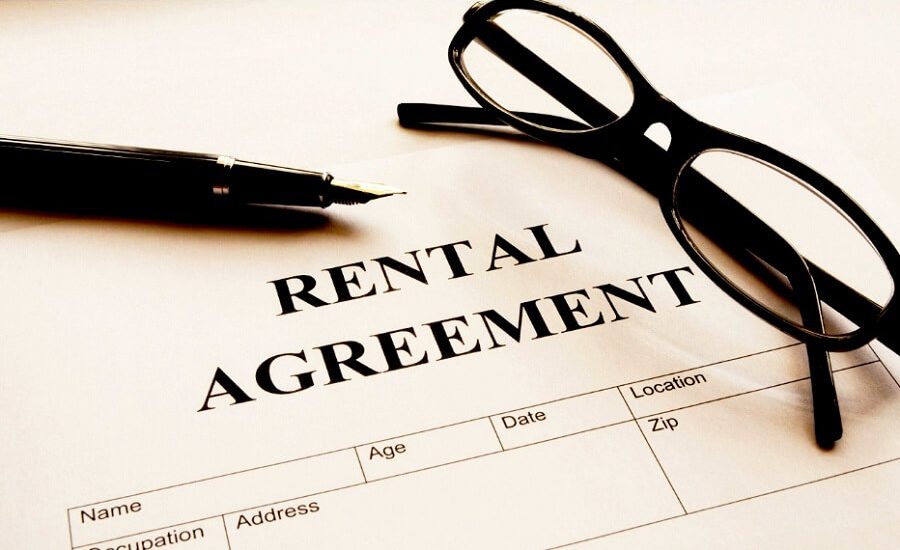- February 28, 2019
- Posted by: admin
- Category: ABC Articles

Well, at the beginning of a landlord-tenant relationship, both parties should understand their basic rights and responsibilities and they should communicate their expectations to each other. Most go blindly into lease agreements and sign off as soon as possible in the excitement of moving into the house. When a tenant signs the lease and/or pays the rent, the legal contract to move in activates. If either party breaks the rental agreement at this point, compensation may be in order for the wronged party.
A rental agreement or lease is a binding written or an oral contract between parties to establish or modify the terms, conditions and rules concerning one of the party’s use and occupancy of residential premises. A properly written lease will eliminate most misunderstandings and problems that commonly arise between a landlord and a tenant, and benefits and protect both parties. A lease may create a tenancy from week to week, month to month or year to year. It is best to make sure that your rights as a Landlord or a Landlord are better understood before signing any documents in relation to the house/apartment or the like.
Starting off with Landlords rights, he is entitled to entering the premises upon grant of the tenant’s permission upon giving him the notice. As a landlord, is it also your right to receive rent when it becomes due? You, moreover have a right to renew the rent annually, terminate the lease agreement upon notice as well as receiving information with regards to the repairs of the house.
Landlord’s Obligations includes a covenant for quite enjoyment whereby when the tenant or Tenant has fulfilled all conditions contained or implied in the lease he is entitled to peaceably, quite possession and enjoyment of the land leased without any interruption from the Landlord or any person claiming through him. The Tenant once has fulfilled his obligations is entitled to protection from interference with his possession as promised and you are not to interfere with the reasonable enjoyment of the tenant and the members of his or her household and guests.
A landlord must not harass, obstruct, coerce, threaten or interfere with the tenant. You also have to repair and maintain the structure of the property and Reimburse tenants for any repairs they carry out which are your responsibility. However, you are not to seize, without legal process, a tenant’s property for rent default or for the breach of any other obligation of the tenant. Most importantly perhaps is that you must maintain the tenant’s home in a good state of repair and fit for habitation and at the landlord’s expense comply with health, safety, and housing and maintenance standards. The Landlord is bound to reimburse the tenant for any necessary and reasonable expenses incurred by the latter for the preservation of the leased property. However, the tenant shoulders the expenses made for ordinary maintenance and petty repairs of the leased property.
With regards to the tenant, the following rights and obligations are associated. First and foremost, the Tenant is entitlement to quite possession provided he obeys the agreement and conditions contained or implied in the lease. The tenant is required to surrender the land and buildings in the same condition they were at the beginning of the lease. However, the tenant is not bound to repair damage or restore land and buildings to the condition they were if any deterioration was caused by: reasonable wear and tear (exhaustion out of reasonable use), natural disasters, eg earthquakes, lightning etc, civil commotion eg riots and accidents not resulting from the negligence of the tenant or his invitees and employees e.g fire outbreak. This however does not take away the responsibility of the tenant to keep all buildings comprised in the lease in a reasonable state of repair and with regard to the condition of the building and materials which it was composed of at the commencement of the lease.
When it comes to obligations, the tenant must pay any reserved rent by the lease at the time and the manner specified. Failure will lead to termination of the lease by the landlord although he must give a notice of intention to terminate.
The tenant is required to allow the landlord at all reasonable times to enter personally or through agents, to inspect the condition of the leased land/premises and carry out repairs. However, in doing so the landlord must not unreasonably interfere with the occupation and use of the land/premises demised. He must also give a reasonable notice.
The tenant is also required to leave when the contracts comes to an end, remove all his belongings and leave the house reasonably tidy. He should also make the landlord aware of any repairs or damage as soon as possible. On the same note, the tenant is also liable to the Landlord for any injury resulting from the delay occasioned by his failure to forthwith inform the Landlord of for example If the leased property is in need of repairs by the Landlord, if a preventive measure is required for avoiding a danger; However, the tenant is not liable for the aforementioned occurrences if the landlord has knowledge of it already.
Where a lease states that the parties will be bound by the usual covenants then they shall but if not then the usual covenants are implied. It is advised that before entering any lease agreement, you consider the above and preferably consult your lawyer.
……………………………………………………………………………………………………………………………………….
The author is an Associate with ABC ATTORNEYS of Dar-es-Salaam, Tanzania and an Arbitrator with the Tanzania Institute of Arbitration and Young International Arbitrators (YIAG)-London. For more articles please visit www.abcattorneys.co.tz or email the author at info@abcatorneys.co.tz.
